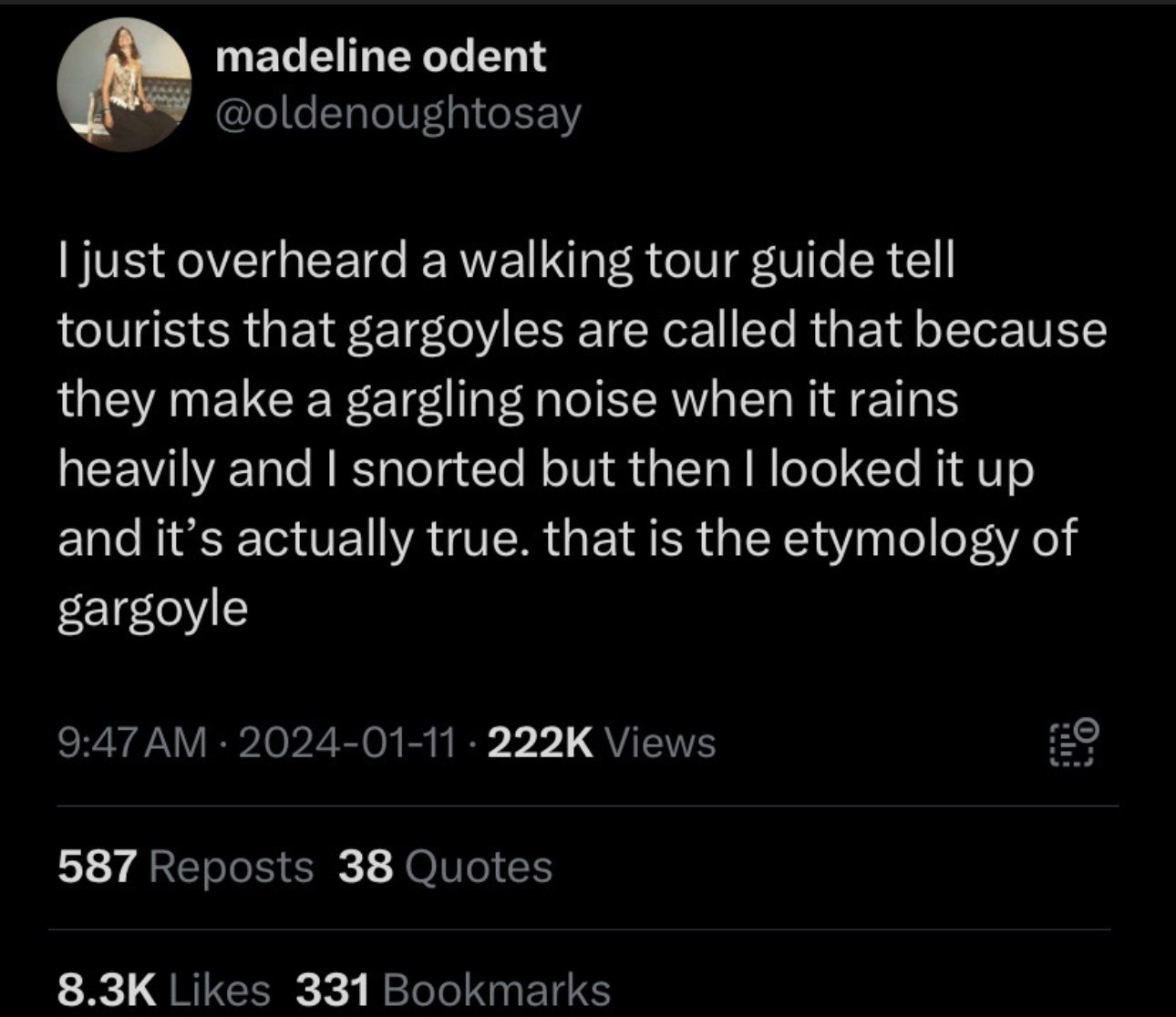this post was submitted on 28 Jan 2024
625 points (99.4% liked)
Microblog Memes
5765 readers
2242 users here now
A place to share screenshots of Microblog posts, whether from Mastodon, tumblr, ~~Twitter~~ X, KBin, Threads or elsewhere.
Created as an evolution of White People Twitter and other tweet-capture subreddits.
Rules:
- Please put at least one word relevant to the post in the post title.
- Be nice.
- No advertising, brand promotion or guerilla marketing.
- Posters are encouraged to link to the toot or tweet etc in the description of posts.
Related communities:
founded 1 year ago
MODERATORS
you are viewing a single comment's thread
view the rest of the comments
view the rest of the comments

It's kinda true, but less exciting than the person made it sound.
https://www.etymonline.com/word/gargoyle
https://www.etymonline.com/word/gargle
Those are two different words though. If the OP had said they were related I wouldn't protest because they likely are. But they stated it as a fact, which we do not know to be true.
In french, gargoyle is “gargouille”. The verb to gargle is “gargouiller”. Used in a sentence, the word is the exact same. “Il se gargouille”/“He gargles”.
I don’t know, to me it seems pretty clear they’re related.
Related yes, "comes from" (the claim made here) we don't know that for sure
I mean, that can be said for literally everything, no? What kind of proof would you need? Everything about languages and the evolution of words is studied by experts, and I am not one of them, so what else can I do but take their word for it?
If you look up their ethymology online, they are both from the same word. The wikitionary entry also claims it does come from it. https://fr.m.wiktionary.org/wiki/gargouille
https://www.youtube.com/watch?v=YWdD206eSv0